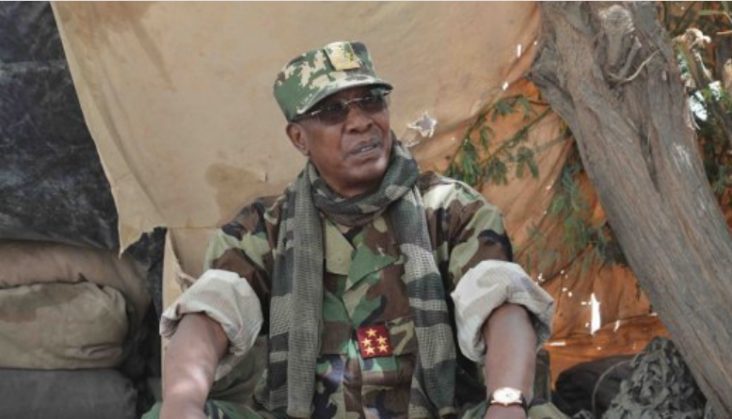In this interview with the African Press Agency (APAnews), Professor Zacharia Ousmane Ramadan, president of the Chadian Centre for Strategic Studies and Prospective Analysis (CCSSPA), spoke about Idriss Deby’s dominance of Chad for the past thirty years, the consequences of his death on the country’s stability and his commitment to the fight against jihadism in the Sahel.
What does Idriss Déby Itno, whose death was announced on Tuesday 20 April, leave behind after ruling Chad for 30 years?
Zacharia Ousmane Ramadan: President Idriss Déby Itno’s legacy is both exceptional and controversial. When he came to power, the country and the sub-region were the scene of serious political crises that seemed insoluble. Chad was the theatre of a multitude of rebellions and its neighbours were experiencing serious tensions. Idriss Déby succeeded in stabilising Chad and prevented it from being dragged into the various crises blighting its neighbours.
Several periods can be distinguished in Déby’s long reign. From the time he took power in 1990 until the early 2000s, he worked to curb the rebellions and to stabilise the country. It was in this context that he allowed the organisation of a sovereign national conference which laid the foundations for a democratic process that allowed the regular organisation of elections, whether transparent or not, and these elections largely contributed to stabilising the country.
From 2000 to 2010, a period that coincided with the first revenues from oil exploitation, Déby had the financial means to embark on a major infrastructure programme that largely transformed the country and which improved his public image.
Later, the emergence of new areas of tension from 2010 onward, such as in the Central African Republic, in Nigeria with Boko Haram, in Libya after the fall of Colonel Muammar Gaddafi and then in the Sahel with the appearance of jihadist groups in Mali and in the region, pushed Déby to engage on several military fronts. This commitment, which earned him the reputation of being France’s best ally and the Western powers in the fight against jihadism in the Sahel, gradually distracted him from the realities of the country. Hence the tensions that plagued Chad just before the presidential election of 11 April, in which he was declared the winner only a few hours before his death was announced.
What could the consequences of Idriss Déby’s death be for the stability of Chad?
Zacharia Ousmane Ramadan: The first steps of the junta that took power immediately after the announcement of Idriss Déby’s death will undoubtedly influence Chad’s immediate future. It faces various and complex challenges. But one of them is likely to be more important than the others, and it is the first one that Chad’s new rulers will face. It is cohesion and unity at the top of the state. It is absolutely necessary that Idriss Déby’s successors manage to remain united in order to lead the country towards a peaceful transition away from the infighting that is often, in this kind of situation, fatal for the men in power and the country as well.
The challenge is all the more enormous given that the system by which Idriss Déby managed to run the country for three decades was conceived and organised entirely around his own person. This is not a situation unique to Chad.
Many African countries are experiencing or have experienced this kind of situation, which explains the perpetual headache of the unfinished business of state and nation building on the continent. Chad is no exception to this reality, despite the exceptional leadership shown by Idriss Déby and which is recognised in the sub-region and throughout Africa.
It is therefore to be hoped that the new government will be open to the rest of the political class and civil society and avoid at all costs fratricidal tug-of-war and the temptation of solitary management of state affairs. This is not an easy task in a country that in sixty years of independence has only experienced a short period of seven to twelve years without major disasters, such as war, drought, locust invasions that devastate crops and so on.
Will the new team in power be able to maintain Chad’s commitments against jihadism in the Sahel in the Lake Chad Basin, where Idriss Déby has sent several thousand soldiers in recent years?
Zacharia Ousmane Ramadan: There is little chance that Chad will withdraw from its external commitments in the fight against jihadism. The new group in power is composed of the main military collaborators of the late president and will probably maintain the commitments made by Idriss Déby. Chadian soldiers fighting alongside the French army in Mali will remain there.
Those engaged alongside neighbouring armies against Boko Haram Islamists in the Lake Chad basin will remain there.
Depending on the evolution of the security situation in the country, some of these soldiers could however be recalled.
LOS/cgd/lb/abj/as/APA


